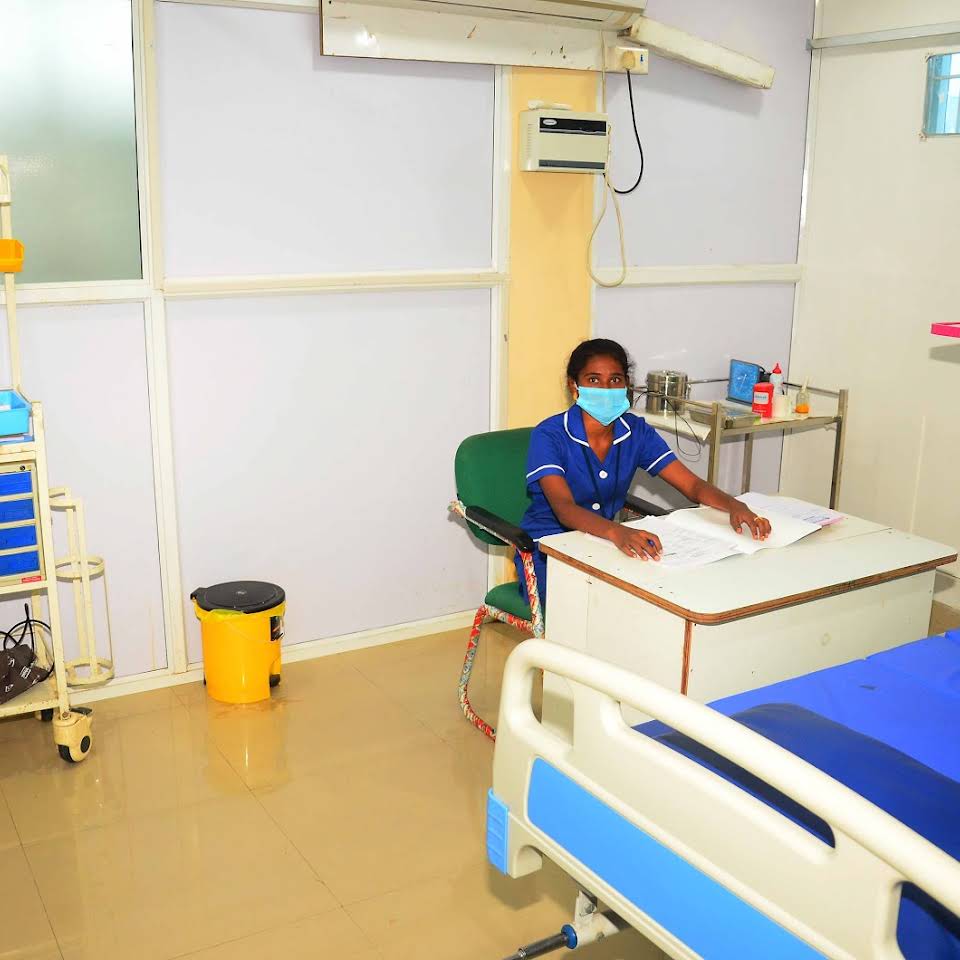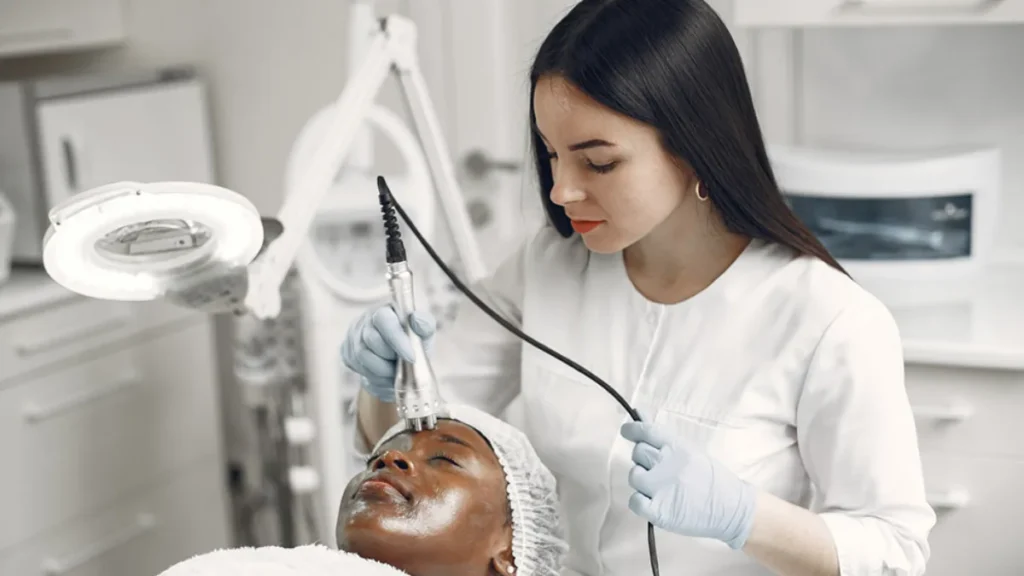Your skin is your body’s largest organ and the first line of defense against the environment. Taking care of it is more than a cosmetic concern—it’s a health priority. Whether you’re dealing with acne, eczema, or signs of aging, dermatology offers expert solutions. In this comprehensive guide, we’ll explore what dermatology is, the conditions it treats, and how to find the right dermatologist near you.
| Contact Us | Info |
|---|---|
| Address | Jolen Hospital, Velachery Road, Sembakkam, Chennai – 600073, Tamil Nadu, India |
| jolenhospital@gmail.com | |
| Mobile | +91 73058 55991 |
| Phone (Landline) | 044 2228 3001 |
What Is Dermatology?
Dermatology is a specialized branch of medicine that focuses on the diagnosis, treatment, and prevention of diseases related to the skin, hair, nails, and mucous membranes. A dermatologist is a medical doctor trained to handle both medical and cosmetic issues involving the skin.
From treating chronic skin conditions to performing advanced cosmetic procedures, dermatologists help restore skin health, improve appearance, and boost confidence.
Branches of Dermatology
Dermatology is a broad field with several sub-specialties:
1. Medical Dermatology
Deals with skin conditions like acne, eczema, psoriasis, and infections. These specialists diagnose and treat chronic or acute skin diseases.
2. Cosmetic Dermatology
Focuses on improving the appearance of skin, hair, and nails through non-surgical treatments like fillers, lasers, and chemical peels.
3. Surgical Dermatology
Involves minor surgical procedures such as mole removal, skin biopsies, and skin cancer treatment.
4. Pediatric Dermatology
Specializes in treating skin problems in infants, children, and adolescents, including birthmarks, rashes, and genetic skin conditions.
Common Skin Conditions Treated by Dermatologists
A dermatologist is trained to identify and treat hundreds of skin-related issues, including:
- Acne: Blackheads, whiteheads, cysts, and acne scars
- Eczema: Inflammatory skin condition causing dry, itchy skin
- Psoriasis: Autoimmune disease causing red, scaly patches
- Fungal Infections: Ringworm, athlete’s foot, yeast infections
- Rosacea: Redness and visible blood vessels on the face
- Hyperpigmentation: Dark patches and uneven skin tone
- Hair Loss: Alopecia, thinning hair, and scalp conditions
- Nail Disorders: Infections, discoloration, and nail separation
Cosmetic Dermatology Services
Modern dermatology offers various non-invasive procedures to enhance your appearance safely and effectively. Popular treatments include:
- Chemical Peels: Remove damaged outer skin layers for smoother texture
- Botox & Fillers: Reduce wrinkles and restore facial volume
- Laser Hair Removal: Long-term solution to unwanted hair
- Skin Rejuvenation: Laser and light-based treatments for aging skin
- Microneedling & PRP Therapy: Stimulate collagen for scar and wrinkle reduction
Skin Cancer Screening and Treatment

Early detection of skin cancer can be life-saving. Dermatologists perform thorough skin exams to identify suspicious moles or lesions.
Common Types of Skin Cancer:
- Basal cell carcinoma
- Squamous cell carcinoma
- Melanoma (most dangerous)
Treatment may include surgical excision, cryotherapy, or Mohs surgery depending on the type and severity.
When Should You See a Dermatologist?
Don’t wait for symptoms to worsen. Schedule a dermatology visit if you experience:
- Persistent rashes or itching
- Sudden changes in skin color or texture
- Chronic acne unresponsive to over-the-counter products
- Hair loss or scalp issues
- Concerns about moles or skin growths
- Cosmetic concerns affecting self-esteem
What to Expect During a Dermatology Appointment
Your first visit typically includes:
- Medical History Review: Including current skincare products and medications
- Skin Examination: Full body or targeted area check
- Diagnostic Tests: Biopsy, allergy tests, or lab work if needed
- Treatment Plan: Customized plan involving medication, therapy, or procedures
Follow-ups are often required for chronic conditions or multi-stage treatments.
Tips for Healthy Skin

A dermatologist can guide you, but daily care plays a crucial role too. Follow these tips:
- Use Sunscreen Daily: Choose broad-spectrum SPF 30 or higher
- Stay Hydrated: Drink enough water for skin elasticity
- Gentle Cleansing: Avoid harsh soaps and over-exfoliation
- Balanced Diet: Include skin-friendly foods rich in vitamins A, C, and E
- Avoid Smoking and Excessive Alcohol: Both accelerate skin aging
Choosing the Right Dermatologist
Finding the best dermatologist ensures proper diagnosis and effective treatment. Consider:
- Credentials: Ensure board certification and specialization
- Experience: Look for expertise in treating your specific concern
- Reputation: Read reviews and testimonials
- Clinic Facilities: Check for modern equipment and hygienic environment
- Location: A nearby dermatologist is more convenient for follow-ups
- Insurance: Make sure the clinic accepts your insurance plan
Frequently Asked Questions (FAQs)
Q1: Can dermatologists treat hair loss?
Yes, dermatologists specialize in diagnosing and treating various causes of hair thinning and baldness.
Q2: Are cosmetic dermatology treatments safe?
When performed by qualified professionals, these procedures are generally safe with minimal side effects.
Q3: How often should I visit a dermatologist?
Once a year for general check-ups, or more frequently if you have ongoing skin issues.
Q4: Do dermatologists treat skin allergies?
Yes, they can conduct allergy tests and provide personalized treatment plans.
Conclusion
Healthy skin is more than just aesthetics—it reflects your overall well-being. Whether you’re looking to treat a skin condition or improve your appearance, dermatology offers effective, science-backed solutions. Don’t hesitate to consult a qualified dermatologist to take control of your skin health and feel confident in your skin every day.


